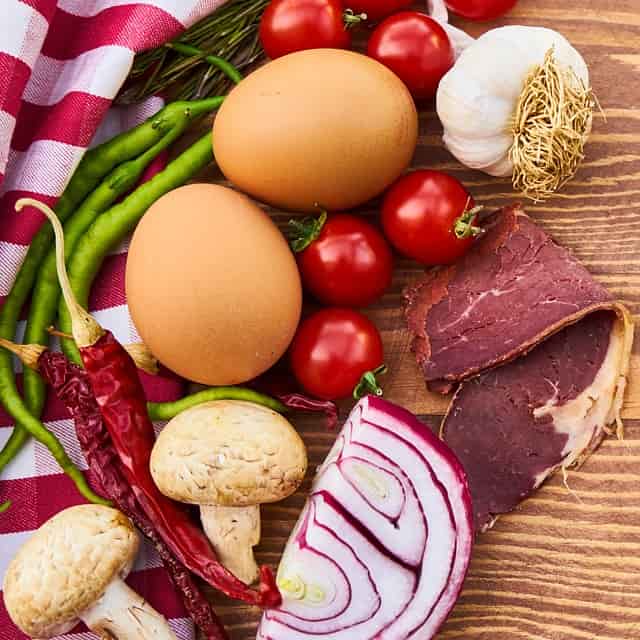As a result, the lost kilograms do not return immediately and the result is quite stable. In the menu for a week, you can see how to combine foods correctly so that the percentage of proteins in food is more than 30, and carbohydrates, on the contrary, are reduced.
Pros of a protein diet
Losing weight comes at the expense of excess fat, not muscle mass, which avoids depletion. The principle of action is as follows: when using protein as the main food and minimizing the amount of carbohydrates, the body has to draw energy from fat deposits, since protein serves only as a building material and is not energy-intensive enough.At the first stage, excess fluid leaves the body, therefore, a protein diet is also called "drying". Then, being under stress, the body begins to burn muscle tissue and tries to accumulate even more fat - in order to avoid hunger days. It is at this stage that a large amount of protein does not allow the muscles to leave, replenishing the loss. If it is impossible to put the excess in reserves, the body begins to burn body fat.
Proteins take a long time to digest, so there is no feeling of hunger. This reduces the likelihood of "breakdowns", as there will be no constant feeling of hunger.
Cons of a protein diet
The increased protein content in the diet increases the burden on the kidneys and liver. Therefore, only healthy people can adhere to the diet, after consulting a doctor and no more than two weeks.Meat food can be very high in calories, in which case weight loss will not occur with thoughtless consumption of proteins. It is important to count calories and not exceed the daily allowance, but only replace carbohydrates with proteins.
A decrease in carbohydrates in the diet is very stressful for both the body and the psyche. Sugars help the brain to work actively, so a lack of carbohydrates can affect mood and concentration.
Constipation can occur due to a lack of fiber and increased protein digestion. Drink a lot to reduce kidney strain and eat fresh vegetables and greens.
Menu for the week for a protein diet
It is important to consume large amounts of high protein foods, replacing some of the carbohydrates and fats. Suitable for meat, fish, eggs, legumes, dairy products.
Day 1
Breakfast: two boiled eggs, sugar-free tea
Lunch: 200 g of low-fat beef, fresh carrot salad
Dinner: fruit salad dressed with yogurt
Before bedtime: a glass of kefir
Day 2
Breakfast: black coffee, cottage cheese
Lunch: 200 g of lean fish, steamed asparagus
Dinner: a slice of cheese, a glass of tomato juice
Before bed: a glass of yogurt without additives
Day 3
Breakfast: two eggs, coffee or tea
Lunch: low-fat beef 200 gr, stewed zucchini
Dinner: salad of tomatoes and cucumbers, a slice of cheese
Before going to bed: a glass of yogurt
Day 4
Breakfast: apple, cottage cheese, tea
Lunch: fresh carrot salad, boiled chicken breast 200 g
Dinner: stewed beans, turkey 100 g
Before going to bed: a glass of kefir
Day 5
Breakfast: a slice of whole-grain bread, an omelet of proteins 3 eggs, coffee
Lunch: cabbage salad, low-fat fish 200 g
Dinner: a glass of tomato juice, a slice of cheese
Before going to bed: a glass of kefir
Day 6
Breakfast: buckwheat porridge with milk, tea
Lunch: brown rice, boiled chicken breast 200 g
Dinner: cottage cheese or savory cheesecakes
Before bed: a glass of yogurt
Day 7
Breakfast: 2 boiled eggs, a slice of whole-grain bread, tea, or coffee
Lunch: meat or fish soup, cabbage salad
Dinner: 3 boiled carrots, a slice of cheese
Before going to bed: a glass of kefir

